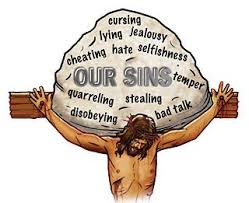Zechariah 8:1-2 – And the word of the Lord of hosts came, saying, "Thus says the Lord of hosts: I am jealous for Zion with great jealousy, and I am jealous for her with great wrath."

Here in chapter 8 we are still dealing with the inquiry of the men of Bethel, who wanted to know if they should continue their yearly fast in the fifth (and seventh) months.
In chapter 7, God used this inquiry as a starting point to correct the sinful behavior of his people. He sternly rebuked not just the men of Bethel, but the whole nation for man-appointed fasts that did not honor him. Using prior generations as an example of judgment, God urged the current generation of Jews to return to obedience to his commands.
Specifically, God wanted his people to love him and obey him. He wanted them to exhibit mercy, justice and love in their treatment of others. If they failed to do so, no amount of fasting could please him.
After this stern reproof, the Jews were somewhat discouraged (after all, no one likes to be told they've been doing the wrong thing for years and years). But God immediately shows compassion to his people by giving them words of hope.

God lifts them from the pit of discouragement by revealing some of the great things he has in store for the nation. From the Jews point of view, there was reason to rejoice because despite their failures and shortcomings, God's favor still rested upon them. He had not abandoned them; his plans for the Jewish nation were still going to come to pass. And these plans were far, far greater than anything they imagined!
God also encourages them by repeatedly using the phrase 'thus says the Lord of hosts'. This description of God is significant for several reasons:
- First, it confirms that the words shared by the prophet were not merely the wishes of a man, but a sure and certain revelation from God.
- Two, the Lord of hosts is a title that affirms the unlimited power of God. Since he is all powerful, he will surely bring his plans to pass, even if it seems impossible to his people. Nothing is impossible for him; nothing can stop him or even slow him down!
- Three, just knowing that the Lord of hosts saw their situation and was working on their behalf greatly strengthened the faith of those who were diligently working to restore the temple.
The next word of encouragement God gives his people is this: he has a great jealousy for them. As you recall, this is not the first time he made this statement:
Zechariah 1:14 – So the angel who talked with me said to me, 'Cry out, Thus says the Lord of Hosts: I am exceedingly jealous for Jerusalem and for Zion.'
God loves his people with a perfect love. Because of that love, he is jealous (zealous, solicitous, vigilant and watchful) for the welfare of his people. Like a passionate husband, God loves and cares for his bride. He is concerned for her honor and interests while harboring incredible anger/wrath for anyone who desires to hurt her.

Now, let's consider the situation in Zechariah's day. We know that Jerusalem was the city which God had chosen for himself; he put his name on it (II Kings 21:7). The temple, the ark and the mercy seat were all located there. It was the capital city of the nation. It was the future location of the atonement of Christ and the birthplace of the church.
In addition, the nation of Israel itself was a memorial of the power and goodness of God. What other nation had a covenant and a history with God like they did? What other nation had been rescued, blessed, protected and watched over like Israel? Any other nation in her situation would have ceased to exist long ago! One only has to examine the history of Israel to know that God was indeed very jealous (zealous, solicitous, vigilant and watchful) for her welfare. �
For example, when the city and temple were destroyed by Babylonian invaders, God could simply have allowed them to perish (which was no more than they deserved). But instead of abandoning his sinful people, God had feelings of jealousy for their welfare. They called out to him in their distress and he heard their cries. When their time of correction was complete, he opened the door for the Jews to return to Jerusalem.
There is an excellent point contained in this situation. God was not concerned with the vain fasts of the Jews, but he was (and still is) very interested in anyone who approaches him with a broken and contrite spirit.
Psalm 34:18 - The LORD is near unto them that are of a broken heart; and saves such as be of a contrite spirit.

When a person truly mourns over the sin in their lives (as Israel did during the captivity), God takes notice. His presence and power will come into that situation and bring change.
Now that Israel had gone through a period of chastisement and correction, God was ready to once again pour out blessings upon her. At the same time, his righteous anger and judgment were being poured out upon the enemies of his people (the Babylonians) because they diligently sought to annihilate Israel, instead of simply functioning as God's rod of correction.
God's jealousy for Israel and his simultaneous judgment of her enemies was manifested many, many times in her history. One such example was the pillar of fire and cloud God sent during the exodus – the Israelites received light and protection, while the Egyptians experienced darkness and destruction (Exodus 14:19-20).
Many scholars also expect future fulfillments of this prophesy as well.
They point to Ezekiel chapters 38 and 39, where Gog and Magog will come against Israel in the last days with great fury. They also expect the antichrist to wage war against Israel during the tribulation period at the end of this age. But in both cases, God will zealously protect, preserve and rescue his people while pouring his wrath out upon her enemies.
Overall, the Lord's statement that he is very jealous for his people is extremely comforting. The Jews had reason to rejoice because God greatly desired to shine his favor upon them, bringing them from a place of hopelessness to a state of joy and gladness.
Zechariah 8:3 – "Thus says the Lord: I have returned to Zion and will dwell in the midst of Jerusalem, and Jerusalem shall be called the faithful city, and the mountain of the Lord of hosts, the holy mountain."

God goes on to assure his people that he has 'returned to Zion'. If he is returning, the inference is that he must have left at some point. Is there a record of that happening?
Unfortunately, yes. In the book of Ezekiel, chapters 8-10, we have a very somber picture of the sin and depravity of Israel before the captivity (these chapters are definitely worth reading, if you have a chance).
God gives Ezekiel a vision of the idolatry and blasphemy of the children of Israel (including the elders and some of the priests). In this passage, God also makes note of the shedding of innocent blood, violence, and injustice.
He then shows the prophet a picture of the departure of his presence from the temple in Jerusalem:
Ezekiel 10:3-4, 18 – Now the cherubim were standing on the south side of the house [the temple], when the man went in, and a cloud filled the inner court. And the glory of the Lord went up from the cherub to the threshold of the house, and the house was filled with the cloud, and the court was filled with the brightness of the glory of the Lord. Then the glory of the Lord went out from the threshold of the house, and stood over the cherubim.
Ezekiel 11:23 – And the glory of the Lord went up from the midst of the city and stood on the mountain that is on the east side of the city.

That was a sad day indeed! But a new day was dawning for Israel. The Lord opened a door of opportunity for his people to return to Jerusalem and rebuild the temple. As the Jews completed the temple and reinstituted the sacrifices, God returned to dwell in their midst once again.
Although God must have seemed very far away during the captivity, he was actually watching over Israel the whole time. And now his presence had returned to dwell among them. Their mourning was now turned to joy!
Eventually, in contrast to her former sinful state, Jerusalem would be called or known as the city of faithfulness or the city of truth. In this instance, 'faithfulness and truth' embrace the concepts of honesty, faith, sincerity, and justice. No idolatry or blasphemy would be found there; only the true worship of God.
God also declares that the 'mountain of the Lord' will be known as the holy mountain.
The mountain being referred to is Mount Zion, where both the first and second temples were built. Because the temple is there and God's presence dwelt in the temple, Mount Zion was frequently called the mountain of holiness by the Old Testament writers (Isaiah 56:7, 65:11, 65:25, Joel 2:1, Obadiah 16-17, Daniel 9:16, Jeremiah 31:23, etc).
As wonderful as this sounds, we have to stop and think logically for a minute. Has this prophesy been fulfilled?
Let's look at the facts. We know that God only speaks the truth. So if he is describing Jerusalem as the city which worships him and exemplifies truth, in whom is found honesty, faith, and justice, then it must be true at some point. However, that did not happen during the time of Zechariah.

Some bible commentators make a case for this prophetic word being partially fulfilled during the incarnation. Since Jesus was frequently found in Jerusalem and the temple, we could loosely say that truth, honesty and true worship of God was present in the city during his lifetime. However, the prophesy delivered by Zechariah seems to indicate that the righteous state of Jerusalem was a permanent one, and that was certainly not the case after Jesus returned to heaven.
And sadly, it is not true today either. In fact, scholars are in agreement that this prophesy is yet to be fulfilled at some future point in time; many believe it will fully manifest during the millennial reign of Christ upon the earth. At that time, Jerusalem will be exactly as described in Ezekiel 37:23-28 (seriously, look this up).
The same can be said for the 'mountain of the Lord'. Right now, there is no temple on Mount Zion. In fact, the building currently located at the site of the former temple is the Dome of the Rock, which is a mosque dedicated to the Muslim prophet Muhammad. This would certainly not be considered a holy site for Christians or Jews. So again, we must conclude that this particular prophesy has not yet been fulfilled.
We can sum up the Lord's promise by saying that God's people were restored from captivity, and the Lord was in their midst. The temple and the holy city of Jerusalem would be rebuilt. Instead of being false, unholy and abandoned, Jerusalem and Mount Zion will one day be known as the city of truth and the holy mountain of God. The fulfillment of this prophesy still lies in the future.

Of course, we can easily see how this message manifests itself in the age of grace. Man was cut off from God when sin entered the world and made us captives, just as the Jews were cut off from God's presence during their captivity.
But according to the eternal will and council of God, Jesus came to atone for the sin of whosoever desires to follow him.
Ephesians 5:24-25 - as Christ loved the church and gave himself up for her, that he might sanctify her, having cleansed her by the washing of water with the word, so that he might present the church to himself in splendor, without spot or wrinkle or any such thing, that she might be holy and without blemish.
Together, Jews and Gentiles now make up the church of Jesus Christ. His Spirit dwells in our hearts making us holy temples of truth and faithfulness forever.
Zechariah 8:4-5 – "Thus says the Lord of hosts: Old men and old women shall again sit in the streets of Jerusalem, each with staff in hand because of great age. And the streets of the city shall be full of boys and girls playing in its streets."
Here we find that God enlarges upon the prophetic picture of a time of peace and prosperity. He does this by declaring that a time would come when old people with walking sticks would be found in Jerusalem. How is that a picture of peace and prosperity?

Well, during Israel's numerous times of conflict/war, men, women and children lost their lives through direct combat, sieges, famine, accidents, polluted water, water shortages, lack of shelter and many other causes related to war. There were some generations that had few (if any) old people.
But in this prophesy, God declares that a day is coming when Israel will no longer be in danger from her enemies; her people will not perish prematurely from war or its side effects.
Instead, they will live in prosperity and security, enjoying a peace so profound that all of their men and women will live full lives extending well into old age. In fact, they will be so old, they will require a staff (or, as we might say, a walker) in order to safely get around!
The implication of the prophesy is that despite their age these folks will still possess strength, vigor and good health both physically and spiritually. These aged citizens would be a crown of honor for God's people.
Did you know that long life was one of the many blessings included in the covenant for faithful service to God?
Deuteronomy 4:40 - You shall keep therefore his statutes, and his commandments, which I command you this day, that it may go well with you, and with your children after you, and that you may prolong your days upon the earth, which the LORD your God gives you, forever.
The returned exiles were incapable of even imagining such a blessing! In the recent history of the nation, the streets of Jerusalem were known for either being filled with the bodies of the slain or else being deserted and desolate, because of those who fled for their lives. In the minds of the remnant who had returned to Jerusalem, it was unthinkable that those same streets could be filled with men and women of advanced age. What an amazing word of encouragement!
As incredible as that promise was, God had even more in store! He declared that his people would also be blessed with an abundance of children who would be numerous, healthy and happy (Genesis 1:28). Due to the peace and security of the nation, these children would be able to joyfully and safely play in the midst of the streets (Psalms 28).
Obviously, as we study current events, we know this prophesy has not yet come to pass in the nation of Israel or in the city of Jerusalem. Again, most scholars believe this prophesy will find its literal or physical fulfillment during the millennial reign of Christ (Isaiah 65:20-22).
As we wait for that day to come, let's ask ourselves this question: Might there be a spiritual fulfillment of this promise as well as a physical one?
Back in the third vision of Zechariah (Zechariah 2:1-4) we saw that God was measuring the future boundaries of the city of Jerusalem. The prophet was also told that the new city would not have walls or gates. This spoke to the enormous amount of people, animals, crops and resources that would be present in the city. In other words, it would be wildly prosperous and ever expanding.
As we noted back in our study of chapter 2, this is a picture of the ever expanding church of Jesus Christ.
In our current study we see a picture of men and women living to an advanced old age and numerous children living and playing in peace and safety. Spiritually speaking, men and women of advanced age may refer to people who are spiritually mature, ready and willing to disciple new converts to the faith. They will be a crown of honor for the church.

Likewise, the many children mentioned in this vision may refer to a significant number of new converts to the kingdom (new born babes in Christ), who, being full of heath and strength, will joyfully praise and worship God without restraint, just like a joyous child running and playing in the streets.
The tranquility and peace described here are the result or the fruit of God's continual presence among his people.
Zechariah 8:6 – "Thus says the Lord of hosts: If it is marvelous in the sight of the remnant of this people in those days, should it also be marvelous in my sight, declares the Lord of hosts?"
First of all, who is the remnant?
This may refer to the Jews who returned to Jerusalem from the captivity. Upon their return, they saw the charred remains of the city, the desolate homes, the broken down gates and the ruined temple. It looked like Jerusalem would never achieve her former glory.
To them, the promises of Jerusalem being known as a city of truth, or the Jews having all of her citizens living to advanced age while children played in the streets was a thing beyond their wildest hopes and dreams. To them, it seemed impossible. They did not believe this could ever happen.
In their defense, they were partially correct. There was no way that man, with his sinful nature, could ever live in complete truth. Neither could he guarantee a happy childhood or long life for the people of the nation.
But when God is involved, everything changes.
God encourages the Jews to believe (have faith) in him, the one who never fails. No matter how astonishing and impossible his promises seemed in the minds of the remnant, they were just a simple matter for God. He can easily bring these things to pass through his supernatural power.
Thus, the Jews of Zechariah's day were once again reminded not to despise the day of small beginnings (Zechariah 4:10), because God's supernatural power would bring that small sprout to full fruition. Israel and Jerusalem didn't look like much at the time, but a day will come when they are the crown jewels of the earth.
There are also scholars who believe that the remnant refers to the Jewish people who accepted Christ as savior during or immediately after the incarnation.
The Jews who actually believed that Jesus was the Messiah was indeed a very small number of the total Jewish population. Furthermore, they were completely astonished that God intended to bring the Gentiles into the kingdom of heaven and create a single, united church which anyone could join. Even though this seemed impossible to them, God easily brought the church into existence.
I would also like to point out that this truth applies to all people in all generations. Even the church thinks way too small. Even we back away from fully placing our faith in the promises of God.
For example, how many of you have read this scripture:
John 14:12 - Verily, verily, I [Jesus] say unto you, He that believes on me, the works that I do shall he do also; and greater works than these shall he do; because I go unto my Father.
Jesus promised us that we would do not only the same, but greater works than he did. Yet, how many of us have the faith to believe it? My guess is that not many of us are standing on this promise. I have a feeling that far more of us immediately dismiss the idea of doing the same works that Jesus did.
I'm not calling attention to this fact to shame anyone (just so you know, I'd be shaming myself too). I'm calling attention to this fact because we need to be aware that God wants to do the astonishing and the miraculous through us.
Knowing that God is infinitely powerful and self-sufficient, we should easily and willingly place our faith in him. Instead of being astonished, we should be living in faith, being fully persuaded that God keeps all of his promises, because his power and infinite resources will make it happen.
Such was the faith of Abraham who did not consider his own age or the age of Sarah's womb, but fully believed that what God promised, he was well able to perform:
Romans 4:20-21 - He [Abraham] staggered not at the promise of God through unbelief; but was strong in faith, giving glory to God; and being fully persuaded that, what he had promised, he was able also to perform.
In light of the infinite power of our God and King, we might want to rethink some of our personal plans and the plans we have for our churches. My guess is that God is ready, willing and able to accomplish the impossible, while we only believe for what we can accomplish in our own strength.
Zechariah 8:7-8 – "Thus says the Lord of hosts: Behold, I will save my people from the east country and from the west country, and I will bring them to dwell in the midst of Jerusalem. And they shall be my people, and I will be their God, in faithfulness and in righteousness."
We have already noted that the phrase "thus says the Lord of hosts" called attention to the fact that the promises spoken were not coming from the lips of Zechariah, but from the throne room of God.

We now see a further confirmation in the word 'behold'. This word calls the attention of the hearer to the fact that God is all powerful, all wise and self-sufficient; with his own power he will bring this promise to pass and glorify his own name in the earth. If God said it, you can believe it will happen!
Question – What is it that God wants his people to behold?
Answer – The guarantee of a two-fold divine restoration.
First, he promises there will be a physical or temporal restoration of their land.
'East' is a euphemism for where the sun rises, while 'west' stands for the setting of the sun. Consequently, the phrase 'east and west' refers to any place on earth where the sun rises and sets, which means the entire world.
In other words, God was promising to gather the Jews from the four corners of the world and bring them back to dwell in Jerusalem once again. And as we know, God did exactly what he promised; the nation of Israel is alive and well today.
Second, God promises a divine spiritual restoration.
Loss of a relationship with God is the greatest loss possible; a person who is separated from God is like a branch separated from the tree – it may look okay for a hot minute, but it is actually already dead (John 15:4-7). It will only be a matter of time before that death manifests itself. During the captivity, Israel was cut off from fellowship with God.
Their spiritual restoration began when they returned to the land, repented of their sinful ways, rebuilt the temple and re-instituted worship. God was once again dwelling in their midst; they were his people and he was their God.

However, as you probably guessed, there may be other fulfillments of this promise as well.
Some commentators believe in a spiritual fulfillment of this promise. They believe that God calls men and women (Jews and Gentiles) from the four corners of the earth to be a part of the kingdom of heaven, whose spiritual seat is the city of Jerusalem – the place where Jesus paid for our sin and established the church.
Ever since that time, countless Jews and Gentiles have been gathered into the 'Jerusalem without walls' (Zechariah 2:8) or the spiritual kingdom of God. In faithfulness and righteousness he is our God and we are his people.
Let me offer you some encouragement:
The children of Israel couldn't believe that God was going to gather the Jews from nations all across the world and bring them back to Jerusalem. To them, this was an astonishing and incredible thing, which they did not have the faith to believe.
But God assures his people that what they find incredible, he sees as a simple action consistent with his eternal plans and purposes. Because he is all powerful, he will easily and effortlessly bring his will to pass. And the nation of Israel would be completely changed because of it.
Likewise, I believe God wants to move across our communities and bring sinners back to the spiritual Jerusalem – the church. The salvation of mass numbers of people (especially our stubborn friends and relatives) may seem impossible to us, but it will happen because it is consistent with God's desire that no person spiritually perishes, but that everyone will be saved (II Peter 3:9). Holy Spirit will easily and effortlessly bring revival to our cities, completely changing our churches (and our communities) because of it.
In light of this, I encourage you to prepare yourself for kingdom work. We need to sharpen our knowledge of the scriptures, improve our personal holiness and spend more time in prayer. We must prepare ourselves to be used of God to win converts and disciple new believers.
Let me offer you some relief:
There is no doubt that individual believers (and the church) need to start dreaming bigger dreams, imagining bigger visions, and stepping out into deeper faith.
Let's stop setting our goals by what we can accomplish in our own power. Instead, we should set our goals based upon the promises of God, which are infinitely greater than we could ever imagine.
There is no need to fear when we do this, because we know that God will bring it to pass through our faith and his own infinite power.
Let me offer you some strength:
Today's post speaks of the tranquility and peace that are the result of God's continual presence among his people.
This is consistent with the blessing that God commanded the high priest to speak over the children of Israel in Numbers 6:22-27. Part of that blessing says this:
Numbers 6:26 – The Lord lift up his countenance upon you, and give you peace.
Think about that for a minute – If God 'lifts up his countenance upon you' it means that you and he are face to face and he is looking right at you. In order for that to happen, you have to be in his presence. And when you are in his presence, he gives you peace that will strengthen and keep you through all the storms of life.
Are you in need of that kind of peace and strength today? If so, begin to rejoice in the Lord. Be thankful for his blessings. Worship him for his infinite greatness, incredible power and astonishing plans. Soon, you will enter his presence (Psalms 100) where he will flood you with his peace.
